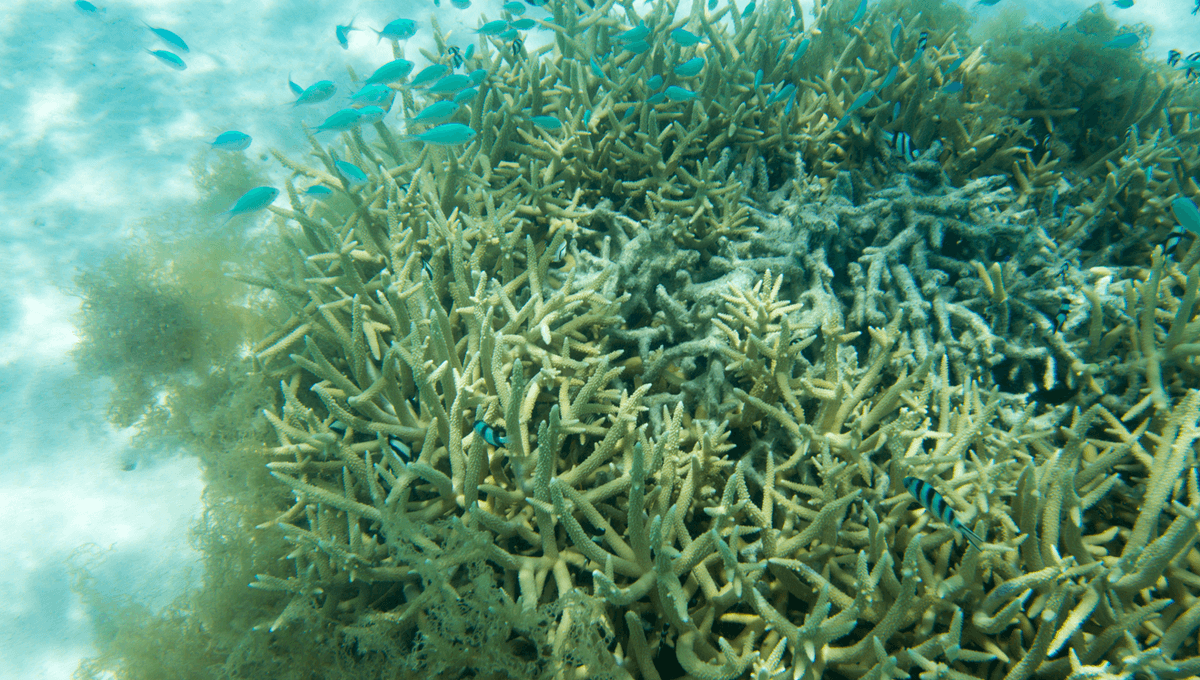
The Great Barrier Reef was struck by an extremely harsh mass beaching event this year, and it looks like parts of the reef are struggling to bounce back. Drone imagery of Lizard Island’s North Point Reef shows that 97 percent of the bleached coral has died since the event earlier this year.
“This is the first quantitative assessment of coral mortality from the last mass bleaching event. We don’t know how much coral died beyond this reef. But we do know that, according to other aerial surveys, almost one-third of the Great Barrier Reef experienced ‘very high’ and ‘extreme’ levels of coral bleaching last summer,” the researchers – from Macquarie University, James Cook University, and Griffith University – explained in an article for the Conversation.
The latest mass bleaching of the Great Barrier Reef was confirmed in March 2024, marking the fifth such event in just eight years. The main reason these destructive events are becoming increasingly common in the Great Barrier Reef and beyond is clear: rising ocean temperatures caused by climate change.
Corals have a mutually beneficial relationship with the algae that live in their tissues. The coral provides the algae with surface area for photosynthesis, while the algae provide the coral with their surplus sugar.
Bleaching occurs when corals kick out the algae from their tissues in response to heat stress, as well as pollution or disease. Without their algae comrades, the coral lose a major source of food, making them weak and susceptible to disease. The algae are what gives the coral their bright colors, so their absence leaves them looking pale and white, hence the term “bleaching”.
Bleached corals are not dead yet – they can sometimes recover and survive – but this latest discovery suggests the corals of North Point Reef are struggling to bounce back after 2024’s event.
Meanwhile, earlier this week, UNESCO called on Australia to take “urgent” action to protect the Great Barrier Reef. This, they urge, should include setting more ambitious climate targets.
UNESCO also asked Australia to gather and publicly release data on the latest round of bleaching “as soon as possible” so scientists can understand how severe the event was. The recent aerial survey at North Point Reef is just one small part of that – but it doesn’t bode well for the rest of the natural wonder.
“Our data suggest an immediate action plan is needed to assess the extent of coral mortality on the Great Barrier Reef,” the researchers write.
Source Link: Over 97 Percent Of Bleached Coral Died At Lizard Island Reef After This Year's Event